Unit 3 My school calendar 知识点复习课件(共29张PPT)
文档属性
| 名称 | Unit 3 My school calendar 知识点复习课件(共29张PPT) | 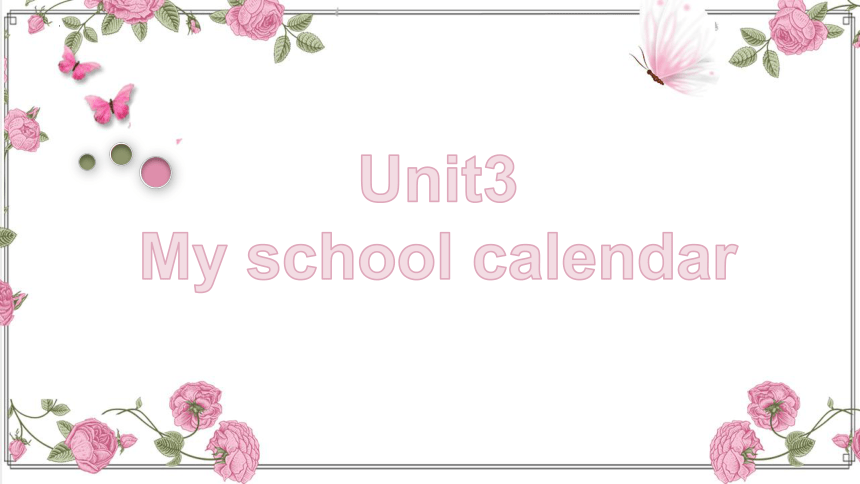 | |
| 格式 | pptx | ||
| 文件大小 | 2.9MB | ||
| 资源类型 | 教案 | ||
| 版本资源 | 人教版(PEP) | ||
| 科目 | 英语 | ||
| 更新时间 | 2023-03-23 20:23:47 | ||
图片预览

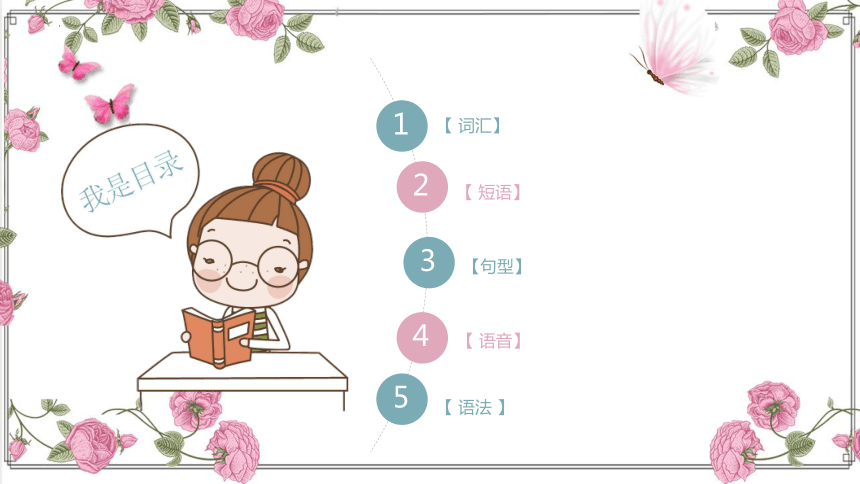
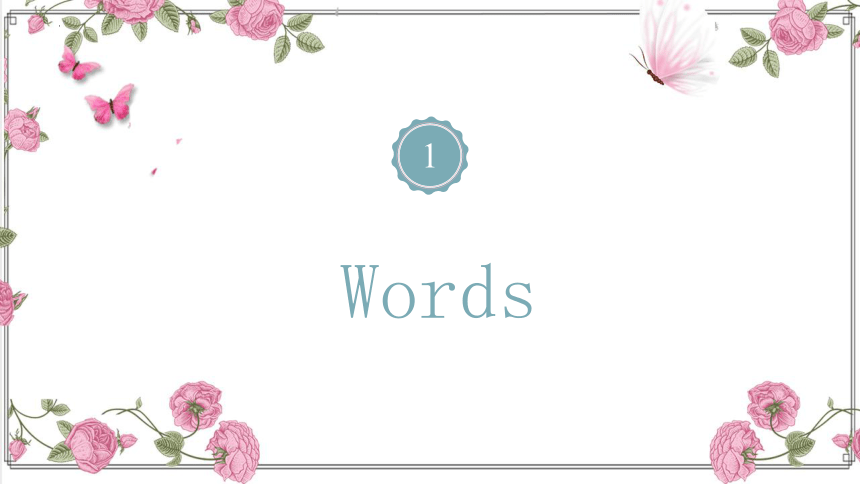
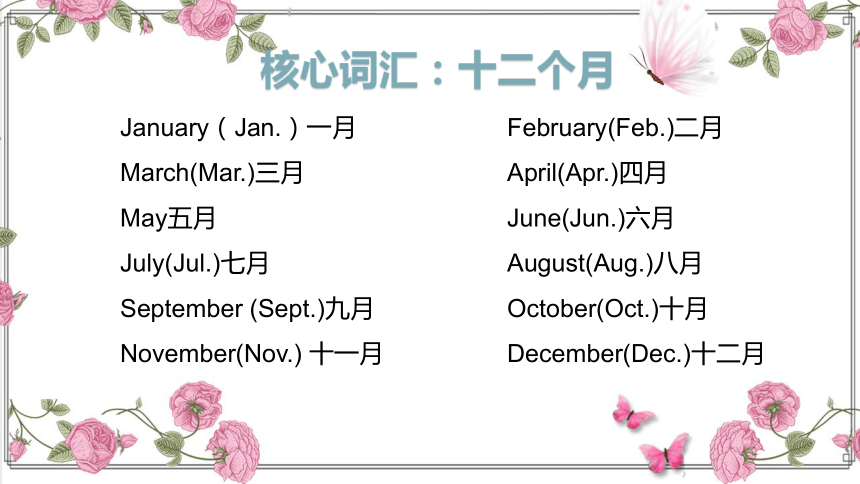
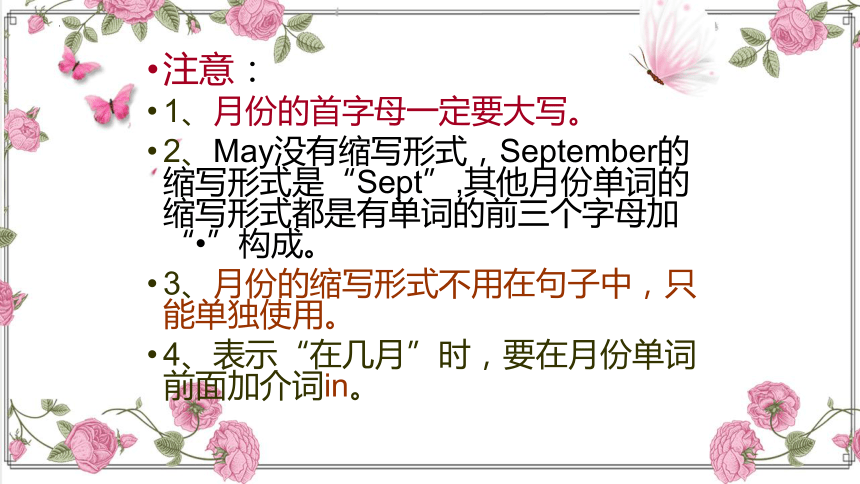
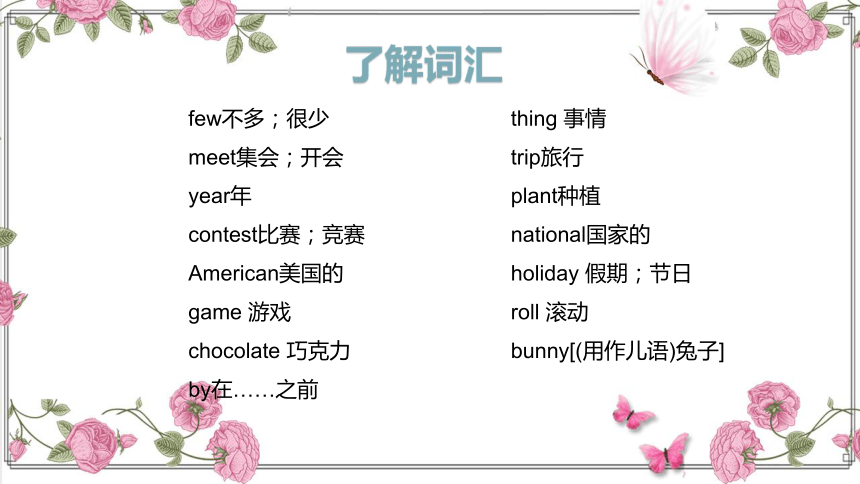
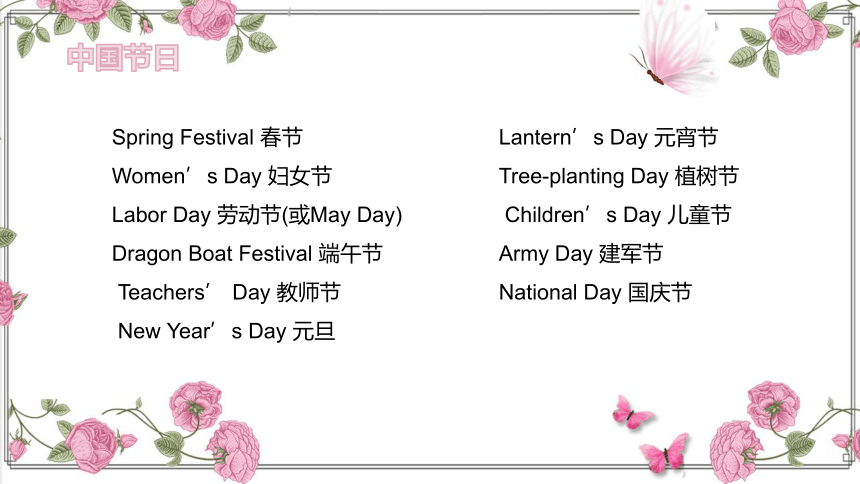
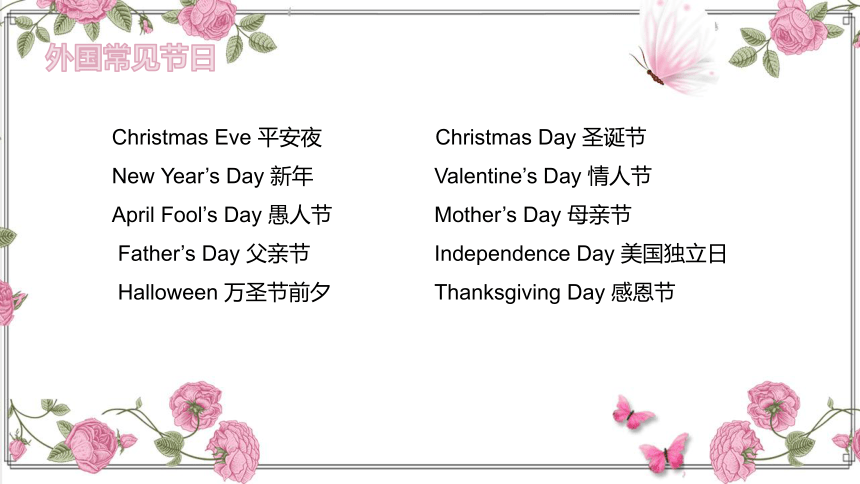
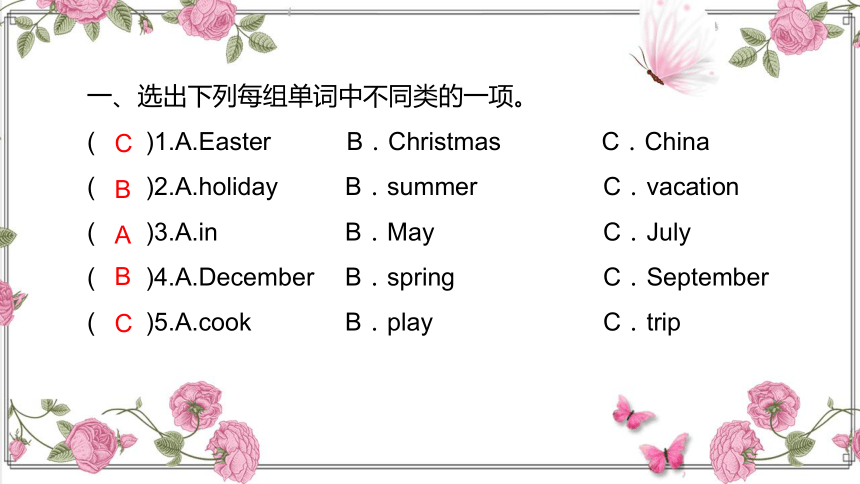
文档简介
(共29张PPT)
Unit3
My school calendar
我是目录
1
【 词汇】
2
【 短语】
3
【句型】
4
【 语音】
5
【 语法 】
Words
1
January(Jan.)一月 February(Feb.)二月 March(Mar.)三月 April(Apr.)四月
May五月 June(Jun.)六月
July(Jul.)七月 August(Aug.)八月
September (Sept.)九月 October(Oct.)十月
November(Nov.) 十一月 December(Dec.)十二月
核心词汇:十二个月
注意:
1、月份的首字母一定要大写。
2、May没有缩写形式,September的缩写形式是“Sept”,其他月份单词的缩写形式都是有单词的前三个字母加“ ”构成。
3、月份的缩写形式不用在句子中,只能单独使用。
4、表示“在几月”时,要在月份单词前面加介词in。
few不多;很少 thing 事情
meet集会;开会 trip旅行
year年 plant种植
contest比赛;竞赛 national国家的
American美国的 holiday 假期;节日
game 游戏 roll 滚动
chocolate 巧克力 bunny[(用作儿语)兔子]
by在……之前
了解词汇
中国节日
Spring Festival 春节 Lantern’s Day 元宵节
Women’s Day 妇女节 Tree-planting Day 植树节
Labor Day 劳动节(或May Day) Children’s Day 儿童节
Dragon Boat Festival 端午节 Army Day 建军节
Teachers’ Day 教师节 National Day 国庆节
New Year’s Day 元旦
外国常见节日
Christmas Eve 平安夜 Christmas Day 圣诞节
New Year’s Day 新年 Valentine’s Day 情人节
April Fool’s Day 愚人节 Mother’s Day 母亲节
Father’s Day 父亲节 Independence Day 美国独立日
Halloween 万圣节前夕 Thanksgiving Day 感恩节
一、选出下列每组单词中不同类的一项。
( )1.A.Easter B.Christmas C.China
( )2.A.holiday B.summer C.vacation
( )3.A.in B.May C.July
( )4.A.December B.spring C.September
( )5.A.cook B.play C.trip
C
B
A
B
C
A. Tree Planting Day B. Dragon Boat Festival C. New Year's Day
D. Teachers' Day E. China's National Day
根据句子描述,从方框中选择节日选项填在相应的横线上。
(1)It's usually in June. We can eat delicious zongzi. It's___________.
(2)It's in March. We always plant trees on this day. It's ___________.
(3)It's in October. We have seven days to stay at home or go out to play. It's ___________.
(4)It's in September. We can give our teachers flowers or cards to say "Thank you" to them. It's ___________.
(5)It's in January. It's the first day of the year and we can have a day's holiday. It's ___________.
B
A
E
D
C
Phrases
2
1. school trip 郊游 2.sports meet 运动会
3.singing contest 歌唱比赛 4.winter vacation 寒假
5. Mother’s Day 母亲节(母亲节在5月的第二个星期日)
6.Father’s Day 父亲节(父亲节在6月的第三个星期日)
7.Children’s Day 儿童节 8.summer vacation 暑假
9.Easter party 复活节聚会 10.make a card 制作卡片11.play the pipa for her 为她弹琵琶 12.the Great Wall长城
13 .start 开始 14,school trip 学校旅行
15,Chinese test 语文测试 16, singing contest歌咏比赛
Sentences
3
核心句型
1. What day is it today It’s Monday . 今天星期几? 星期一。
2. What’s the date It’s May 4th . 今天几月几号? 5月4号。
3. When is Tree Planting Day It’s in March . 植树节在什么时候?在3月。
4. How many birthdays are there in January 一月份有多少生日
There be 句型提问,也要用There is/are … birthdays in …来回答
5. Is your birthday in February, too 你的生日也在二月吗
一般疑问句,改为陈述句:Your birthday is in February, too.
6. -What are you doing 你正在干什么
- I am making a birthday chart for our family.
我在为我们的家庭做一张生日图。 现在进行时,在第四单元仔细学习。
核心句型
7. There are three birthdays in June. 在六月有三个生日。
There be 句型要重点掌握。
8. Uncle Bill’s birthday Bill叔叔的生日 某人的,表示名词所有格
9. Here’s the chart. 这是表格。 这是here be句型
10. Whose birthday is in June 谁的生日在六月
同义句:Who has a birthday in June
11. What’s the date 几号 (问日期专用句型)
12. Everyone likes to get birthday cards. 每个人都喜欢得到生日卡片。
每人,当主语时,动词要用单数第三人称形式
文中句型
1. We have a few fun things in spring 在春天我们有一些有趣的事情。
2. Autumn is my favourite season. 秋天是我最喜欢的季节。
3. We’ll go to the Great Wall. 我们将要去长城。
4. I’ll cook for my mother . 我将要为我的妈妈做饭。
5. I’ll eat mooncakes with my family . 我将要和我的家人吃月饼。
6. Mid-Autumn Day is usually in September or October .
中秋节通常在9月或者10月。
情景交际。
( ) 1. 你想知道中国的国庆日是什么时候,你可以问:
A. When is Children’s Day B. When is China’s National Day
C. When is Dragon Boat Festival
( ) 2. 你想知道唱歌比赛是否在五月,你可以问:
A. Is the singing contest in June B. Is the school trip in May
C. Is the singing contest in May
( ) 3. 你想用英语表达“春天是我最喜欢的季节”,你可以说:
A. I like summer best. B. Autumn is my favourite season.
C. Spring is my favourite season.
( ) 4. 你想用英语表达“寒假通常在一月和二月”,你可以说:
A. Winter vacation is usually in March and April.
B. Winter vacation is usually in January and February.
C. Winter vacation is usually in June and July.
( ) 5. 九月有什么节日?
A. Tree Planting Day. B. Mother’s Day. C. Teachers’ Day.
B
C
C
B
C
pronunciation
4
ch和sh 的发音永远不会相同。
ch:China chicken lunch teacher cheap
sh: sheep shirt fish shorts fresh
ch 发音特殊的单词: Christmas school
判断每组单词画线部分的读音是(T)否(F)一致。
( )(1)A. wash B. fish C. sheep
( )(2)A. watch B. chicken C. China
( )(3)A. chair B. teacher C. Christmas
( )(4)A. shirt B. skirt C. short
T
T
F
F
Grammar
5
一,介词in,on,at的用法。
1. 介词in 、on、 at的用法。
1、in后面+上午/下午/晚上/月份/季节/年份。
如:inthe morning, in April, in winter, in 2015.
2、on的后面+具体的某一天。
如:onMonday, on April 3rd, on Friday morning.
3、at后面+具体的时间点或与其他词构成固定搭配。
如:at six o’clock, at 12:30,at noon.
二、表达“我们将要 ”的句型。
We’ll =We will 后面+动词原形,这是一个一般将来时的句子,表示将来某个时间要发生的动作或事情。
例:We’ll have a school trip.(我们将有一次学校旅行。)
We’ll have a singing contest.(我们将有一次歌咏比赛。)
We’ll take a dancing class.(我们将要上一节舞蹈课。)
三、问答某个活动或节日在几月份的句型及回答。
句型结构:问:When is+活动或节日名称?
答:It’s in+月份。
例:问:when is Christmas (圣诞节在什么时候?)
It’s in December.(在十二月。)
四、询问别人将要做什么的句型及回答。
句型结构:
问:What will you do+其他?
答:I will...=I’ll...
例:问:what will you do for your mum on Mother’s Day (母亲节你将为你妈妈做什么 )
答:I’ll give her some flowers.(我将送给她一些花。)
to in on at by
从方框中选择正确的介词补全句子。(每词限用一次)
1. Christmas is_____________December.
2. The singing contest is_____________Friday.
3. Would you like to come_____________ my birthday party
4. Please send an email_____________ April 23rd.
5. Mary gets up_____________6:30 every day.
in
on
to
by
at
单项选择。
( ) 1. Miss White is________great English teacher.
A. a B. an C. /
( ) 2. I will make a card for my mother ________Mother’s Day.
A. in B. at C. on
( ) 3. After January, it is________.
A. February B. December C. April
( ) 4. We have________ fun things in summer.
A. a few B. a lot C. a lots of
( ) 5. I like summer best________Children’s Day.
A. because B. why C. because of
A
C
A
A
C
( ) 6. In China, summer vacation is usually in______and______.
A. April; May B. November; December C. July; August
( ) 7. We usually_______on Mid-Autumn Day.
A. plant f lowers B. eat mooncakes C. play in the snow
( ) 8. —When is ________? —It’s in March.
A. Father’s Day B. China’s National Day C. Tree Planting Day
( ) 9. —Is the school trip in May? — ________ It’s in April.
A. Yes, it is. B. No, it isn’t. C. I don’t know.
( ) 10. —What will you do at the party? — _____
A. We like eating a cake.
B. We often eat a cake.
C. We’ll eat a cake.
C
B
C
B
C
Thank you
Unit3
My school calendar
我是目录
1
【 词汇】
2
【 短语】
3
【句型】
4
【 语音】
5
【 语法 】
Words
1
January(Jan.)一月 February(Feb.)二月 March(Mar.)三月 April(Apr.)四月
May五月 June(Jun.)六月
July(Jul.)七月 August(Aug.)八月
September (Sept.)九月 October(Oct.)十月
November(Nov.) 十一月 December(Dec.)十二月
核心词汇:十二个月
注意:
1、月份的首字母一定要大写。
2、May没有缩写形式,September的缩写形式是“Sept”,其他月份单词的缩写形式都是有单词的前三个字母加“ ”构成。
3、月份的缩写形式不用在句子中,只能单独使用。
4、表示“在几月”时,要在月份单词前面加介词in。
few不多;很少 thing 事情
meet集会;开会 trip旅行
year年 plant种植
contest比赛;竞赛 national国家的
American美国的 holiday 假期;节日
game 游戏 roll 滚动
chocolate 巧克力 bunny[(用作儿语)兔子]
by在……之前
了解词汇
中国节日
Spring Festival 春节 Lantern’s Day 元宵节
Women’s Day 妇女节 Tree-planting Day 植树节
Labor Day 劳动节(或May Day) Children’s Day 儿童节
Dragon Boat Festival 端午节 Army Day 建军节
Teachers’ Day 教师节 National Day 国庆节
New Year’s Day 元旦
外国常见节日
Christmas Eve 平安夜 Christmas Day 圣诞节
New Year’s Day 新年 Valentine’s Day 情人节
April Fool’s Day 愚人节 Mother’s Day 母亲节
Father’s Day 父亲节 Independence Day 美国独立日
Halloween 万圣节前夕 Thanksgiving Day 感恩节
一、选出下列每组单词中不同类的一项。
( )1.A.Easter B.Christmas C.China
( )2.A.holiday B.summer C.vacation
( )3.A.in B.May C.July
( )4.A.December B.spring C.September
( )5.A.cook B.play C.trip
C
B
A
B
C
A. Tree Planting Day B. Dragon Boat Festival C. New Year's Day
D. Teachers' Day E. China's National Day
根据句子描述,从方框中选择节日选项填在相应的横线上。
(1)It's usually in June. We can eat delicious zongzi. It's___________.
(2)It's in March. We always plant trees on this day. It's ___________.
(3)It's in October. We have seven days to stay at home or go out to play. It's ___________.
(4)It's in September. We can give our teachers flowers or cards to say "Thank you" to them. It's ___________.
(5)It's in January. It's the first day of the year and we can have a day's holiday. It's ___________.
B
A
E
D
C
Phrases
2
1. school trip 郊游 2.sports meet 运动会
3.singing contest 歌唱比赛 4.winter vacation 寒假
5. Mother’s Day 母亲节(母亲节在5月的第二个星期日)
6.Father’s Day 父亲节(父亲节在6月的第三个星期日)
7.Children’s Day 儿童节 8.summer vacation 暑假
9.Easter party 复活节聚会 10.make a card 制作卡片11.play the pipa for her 为她弹琵琶 12.the Great Wall长城
13 .start 开始 14,school trip 学校旅行
15,Chinese test 语文测试 16, singing contest歌咏比赛
Sentences
3
核心句型
1. What day is it today It’s Monday . 今天星期几? 星期一。
2. What’s the date It’s May 4th . 今天几月几号? 5月4号。
3. When is Tree Planting Day It’s in March . 植树节在什么时候?在3月。
4. How many birthdays are there in January 一月份有多少生日
There be 句型提问,也要用There is/are … birthdays in …来回答
5. Is your birthday in February, too 你的生日也在二月吗
一般疑问句,改为陈述句:Your birthday is in February, too.
6. -What are you doing 你正在干什么
- I am making a birthday chart for our family.
我在为我们的家庭做一张生日图。 现在进行时,在第四单元仔细学习。
核心句型
7. There are three birthdays in June. 在六月有三个生日。
There be 句型要重点掌握。
8. Uncle Bill’s birthday Bill叔叔的生日 某人的,表示名词所有格
9. Here’s the chart. 这是表格。 这是here be句型
10. Whose birthday is in June 谁的生日在六月
同义句:Who has a birthday in June
11. What’s the date 几号 (问日期专用句型)
12. Everyone likes to get birthday cards. 每个人都喜欢得到生日卡片。
每人,当主语时,动词要用单数第三人称形式
文中句型
1. We have a few fun things in spring 在春天我们有一些有趣的事情。
2. Autumn is my favourite season. 秋天是我最喜欢的季节。
3. We’ll go to the Great Wall. 我们将要去长城。
4. I’ll cook for my mother . 我将要为我的妈妈做饭。
5. I’ll eat mooncakes with my family . 我将要和我的家人吃月饼。
6. Mid-Autumn Day is usually in September or October .
中秋节通常在9月或者10月。
情景交际。
( ) 1. 你想知道中国的国庆日是什么时候,你可以问:
A. When is Children’s Day B. When is China’s National Day
C. When is Dragon Boat Festival
( ) 2. 你想知道唱歌比赛是否在五月,你可以问:
A. Is the singing contest in June B. Is the school trip in May
C. Is the singing contest in May
( ) 3. 你想用英语表达“春天是我最喜欢的季节”,你可以说:
A. I like summer best. B. Autumn is my favourite season.
C. Spring is my favourite season.
( ) 4. 你想用英语表达“寒假通常在一月和二月”,你可以说:
A. Winter vacation is usually in March and April.
B. Winter vacation is usually in January and February.
C. Winter vacation is usually in June and July.
( ) 5. 九月有什么节日?
A. Tree Planting Day. B. Mother’s Day. C. Teachers’ Day.
B
C
C
B
C
pronunciation
4
ch和sh 的发音永远不会相同。
ch:China chicken lunch teacher cheap
sh: sheep shirt fish shorts fresh
ch 发音特殊的单词: Christmas school
判断每组单词画线部分的读音是(T)否(F)一致。
( )(1)A. wash B. fish C. sheep
( )(2)A. watch B. chicken C. China
( )(3)A. chair B. teacher C. Christmas
( )(4)A. shirt B. skirt C. short
T
T
F
F
Grammar
5
一,介词in,on,at的用法。
1. 介词in 、on、 at的用法。
1、in后面+上午/下午/晚上/月份/季节/年份。
如:inthe morning, in April, in winter, in 2015.
2、on的后面+具体的某一天。
如:onMonday, on April 3rd, on Friday morning.
3、at后面+具体的时间点或与其他词构成固定搭配。
如:at six o’clock, at 12:30,at noon.
二、表达“我们将要 ”的句型。
We’ll =We will 后面+动词原形,这是一个一般将来时的句子,表示将来某个时间要发生的动作或事情。
例:We’ll have a school trip.(我们将有一次学校旅行。)
We’ll have a singing contest.(我们将有一次歌咏比赛。)
We’ll take a dancing class.(我们将要上一节舞蹈课。)
三、问答某个活动或节日在几月份的句型及回答。
句型结构:问:When is+活动或节日名称?
答:It’s in+月份。
例:问:when is Christmas (圣诞节在什么时候?)
It’s in December.(在十二月。)
四、询问别人将要做什么的句型及回答。
句型结构:
问:What will you do+其他?
答:I will...=I’ll...
例:问:what will you do for your mum on Mother’s Day (母亲节你将为你妈妈做什么 )
答:I’ll give her some flowers.(我将送给她一些花。)
to in on at by
从方框中选择正确的介词补全句子。(每词限用一次)
1. Christmas is_____________December.
2. The singing contest is_____________Friday.
3. Would you like to come_____________ my birthday party
4. Please send an email_____________ April 23rd.
5. Mary gets up_____________6:30 every day.
in
on
to
by
at
单项选择。
( ) 1. Miss White is________great English teacher.
A. a B. an C. /
( ) 2. I will make a card for my mother ________Mother’s Day.
A. in B. at C. on
( ) 3. After January, it is________.
A. February B. December C. April
( ) 4. We have________ fun things in summer.
A. a few B. a lot C. a lots of
( ) 5. I like summer best________Children’s Day.
A. because B. why C. because of
A
C
A
A
C
( ) 6. In China, summer vacation is usually in______and______.
A. April; May B. November; December C. July; August
( ) 7. We usually_______on Mid-Autumn Day.
A. plant f lowers B. eat mooncakes C. play in the snow
( ) 8. —When is ________? —It’s in March.
A. Father’s Day B. China’s National Day C. Tree Planting Day
( ) 9. —Is the school trip in May? — ________ It’s in April.
A. Yes, it is. B. No, it isn’t. C. I don’t know.
( ) 10. —What will you do at the party? — _____
A. We like eating a cake.
B. We often eat a cake.
C. We’ll eat a cake.
C
B
C
B
C
Thank you
